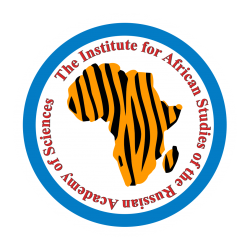Author:
Abstract:
The choice of partner countries for potential investment projects constitutes an important issue in the development of Russian-African cooperation. The article aims to answer the question of whether the small island states in the region (Mauritius, Seychelles, Cape Verde, Sao Tome and Principe, Comoros, Guinea-Bissau) should be included in the list of investment priorities. To this end, the author undertakes an analysis at three levels: global, regional and the national (country) one. Accordingly, first, fundamental features of the global investment system are identified, in the light of the Fituni-Abramova theory of the world economy’s subsystemic dichotomy. Second, the author introduces the concept of «economic potential scale» and hypothesizes that it plays a more important role in the allocation of foreign direct investment in Africa than in other regions of the world. As the correlation analysis shows, the important role of economic potential scale is not only characteristic of Africa, but also of other regions except Europe. According to the author, this is due to the fact that in Europe the investment climate is more important, whereas in other regions, including Africa, natural resource potential and other indicators related to economic potential scale remain the important factor. Third and lastly, taking into account the global and regional patterns discussed above, the author considers the potential for inclusion of the African small island states in Russia’s list of investment priorities. For this purpose, the author proposes a typology of these countries based on the intensity of investment attraction: the «high-intensity – offshore», «high-intensity», and «low-intensity» types. The conclusion is that the countries belonging to the first two types can be considered among Russia’s priorities for investment in Africa. Despite their relatively small economic potential, they have a number of competitive advantages, including those associated with the ocean economy.
Keywords:
economic potential scale, small island developing states, Africa, foreign direct investment, offshore, Russia-Africa cooperation, Russia-Africa summit, ocean economy
DOI:
10.31132/2412-5717-2023-64-3-48-58
References:
1. Foreign direct investment: Inward and outward flows and stock, annual, 1980-2021. UNCTAD. https://unctadstat.unctad.org/wds/TableViewer/tableView.aspx?ReportId=96740 (accessed 27.01. 2023)
2. Agenda 2063: The Africa We Want (Popular Version). African Union. https://au.int/sites/default/files/ documents/36204-doc-agenda2063_popular_version_en.pdf (accessed 20.12.2022)
3. Investment. AfCFTA. https://au-afcfta.org/trade-areas/investment/ (accessed 20.12.2022)
4. Giroud A., Ivarsson I. World Investment Report 2020: International production beyond the pandemic. New York. United Nations. 2020, 247 p. ISBN 978-92-1-112985-4.
5. Mendez-Parra M. et al. AfCFTA investment negotiations: Notes on concepts (May 2020). ODI. https://set.odi.org/wp-content/uploads/2020/06/Investment-Training-Notes.pdf (accessed 20.12.2022)
6. Fituni L.L. “Non-Catch-up Development” of Africa. Economist’s observations on forecasts, statistical manipulations, demographic romanticism and rejuvenation of elites (In Russian). Journal of the Institute for African Studies. 2019, №3 (48), pp. 5‒17. DOI: 10.31132/2412-5717-2019-48-3-5-17.
7. Fituni L.L., Abramova I.O. Developing Countries in the New Equation of the Post-Crisis World Order (In Russian). World Eсonomy and International Relations. 2022, vol. 66, №. 11, pp. 5‒13. DOI: 10.20542/0131-2227-2022-66-11-5-13.
